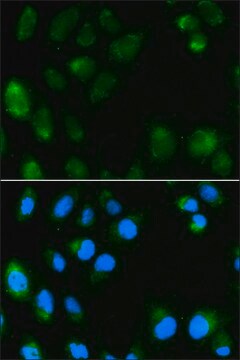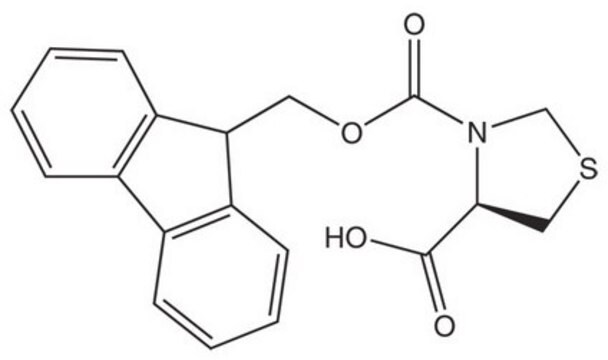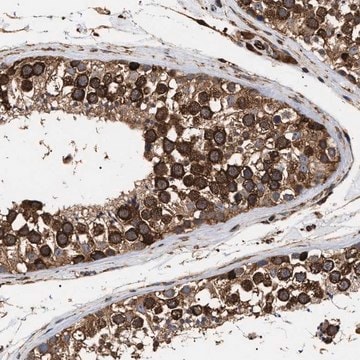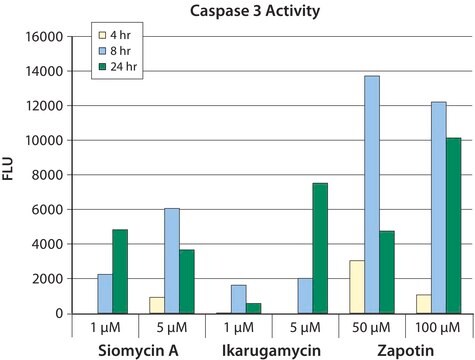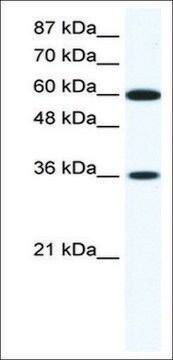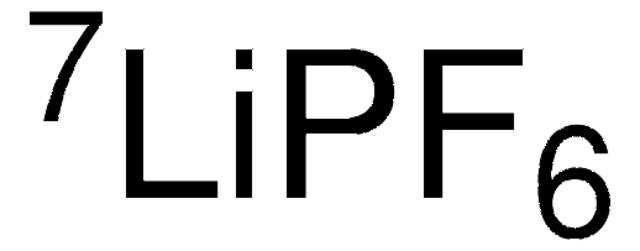AB3046
Anti-Uncoupling Protein 3 Antibody
Chemicon®, from rabbit
Synonyme(s) :
UCP3
About This Item
Produits recommandés
Source biologique
rabbit
Niveau de qualité
Forme d'anticorps
affinity purified immunoglobulin
Type de produit anticorps
primary antibodies
Clone
polyclonal
Produit purifié par
affinity chromatography
Espèces réactives
human, rat
Fabricant/nom de marque
Chemicon®
Technique(s)
ELISA: suitable
immunohistochemistry: suitable
western blot: suitable
Numéro d'accès NCBI
Numéro d'accès UniProt
Conditions d'expédition
dry ice
Modification post-traductionnelle de la cible
unmodified
Informations sur le gène
human ... UCP3(7352)
rat ... Ucp3(25708)
Description générale
Spécificité
Immunogène
Application
Metabolism
Ion & Transport Channels
Immunohistochemistry: 2-20 μg/mL on formaldehyde fixed tissue.
ELISA: (1:10,000-1:100,000 using 50-100 ng UCP32 control peptide/well).
Optimal working dilutions must be determined by end user.
Description de la cible
Forme physique
Stockage et stabilité
Remarque sur l'analyse
Muscle tissue, Blocking peptide for UCP3 is available (Catalogue No. AG769).
Informations légales
Clause de non-responsabilité
Vous ne trouvez pas le bon produit ?
Essayez notre Outil de sélection de produits.
Code de la classe de stockage
12 - Non Combustible Liquids
Classe de danger pour l'eau (WGK)
WGK 2
Point d'éclair (°F)
Not applicable
Point d'éclair (°C)
Not applicable
Certificats d'analyse (COA)
Recherchez un Certificats d'analyse (COA) en saisissant le numéro de lot du produit. Les numéros de lot figurent sur l'étiquette du produit après les mots "Lot" ou "Batch".
Déjà en possession de ce produit ?
Retrouvez la documentation relative aux produits que vous avez récemment achetés dans la Bibliothèque de documents.
Notre équipe de scientifiques dispose d'une expérience dans tous les secteurs de la recherche, notamment en sciences de la vie, science des matériaux, synthèse chimique, chromatographie, analyse et dans de nombreux autres domaines..
Contacter notre Service technique
